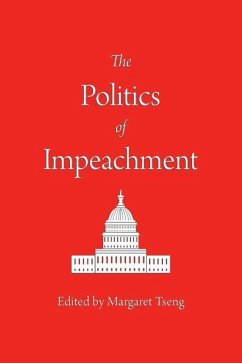As changes in our political system have developed over the last two centuries, impeachment has grown even more political. The polarization of political parties, the power of interest groups and the expansion of suffrage has deeply impacted who we elect. Those elected officials, in turn, are responsible for overseeing the impeachment process, and their decisions are impacted by party dynamics, interest group influence and the desires of their constituents. While discussion about impeachment seems ubiquitous today, on the state level, impeachments of governors are extremely rare. Over 2,000 people have served as governors in the United States, but only thirteen governors have been impeached and eight removed from office. On the national level, there have only been two presidential impeachments, but modern presidents have faced increased impeachment efforts. Every president since Ronald Reagan has faced some type of impeachment resolution from the opposing party. President Trump is no exception. Starting from his first day in office, over a million people signed an online impeachment petition and within six months of taking office he faced articles of impeachment from two Democratic congressmen. This edited volume addresses the increased political nature of impeachment. It is meant to be a wide overview of impeachment on the federal and state level, including: the politics of bringing impeachment articles forward, the politicized impeachment proceedings, the political nature of how one conducts oneself during the proceedings and the political fallout afterwards. The group of men profiled in this book are an interesting, over-the-top group of politicians including Richard Nixon, Bill Clinton, William Sulzer, Evan Mecham, and Rod Blagojevich. Margaret Tseng is Professor and Chair of the Department of History and Politics at Marymount University in Arlington, Virginia. She also serves as the director of the American Heritage Initiative at Marymount. She earned her Ph.D. from Georgetown University. She is co-editor of The Presidents as Commander-in-Chief series with the Naval Institute Press. Contents: Andrew Johnson, Congress, and the Impeachment Crisis, Richard Zuczek Impeaching Richard Nixon, Mark Lytle The Clinton Impeachment: Where are they now?, Nicholas S. Miras and Irwin L. Morris Donald Trump: The Odds Against Impeachment, Margaret Tseng William Blount and the Constitution: The First Federal Impeachment, Melton Buckner Democratic-Republicans vs. Chase: The Battle for the Federal Judiciary, Joanne Tetlow The Curious Case of William Belknap's Impeachment, Dana John Stefanelli The Tiger's Bite: William Sulzer's Impeachment in the Empire State, Jack O'Donnell The Denouement of Texas Progressivism: The Impeachment of Governor James E. Ferguson, John R. Lundberg The Aborted Term of Governor Evan Mecham, Ronald J. Watkins The Blagojevich Impeachment, John Chase








